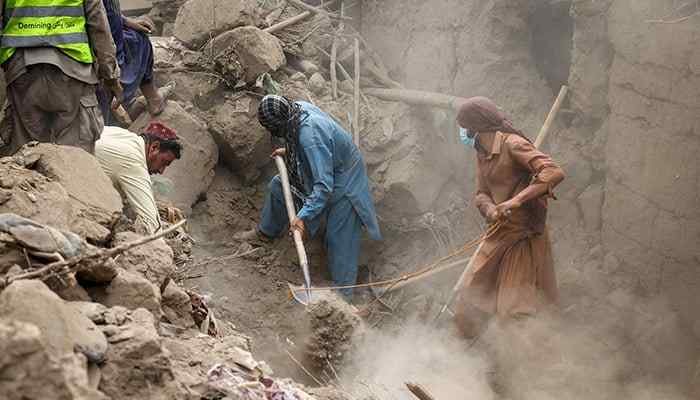Rescue operations in eastern Afghanistan have entered a grim phase as hopes of pulling more survivors from the rubble fade. A 6.0-magnitude earthquake struck the mountainous border region with Pakistan on Sunday, leaving more than 1,400 people dead and injuring over 3,300, according to Taliban officials. The disaster is now among the deadliest quakes to hit Afghanistan in decades.
Remote Villages Remain Cut Off
The worst devastation has been reported in Kunar province, where entire villages were flattened. Nearby Nangarhar and Laghman provinces also suffered casualties, though on a smaller scale. Rescue workers say reaching survivors is proving nearly impossible in some areas.
Landslides triggered by the quake have blocked already treacherous mountain roads, forcing aid workers to travel on foot. Save the Children reported that one of its teams trekked 20 kilometers while carrying medical supplies on their backs to reach isolated communities.
Local official Ijaz Ulhaq Yaad said some villages still haven’t received any assistance. “Victims remain trapped under collapsed homes, but rescuers cannot get through,” he told AFP.
Emergency Response Under Strain
The Taliban government has scrambled helicopters to evacuate the wounded, completing over 150 flights in the past two days to move around 2,000 injured residents to hospitals. Mobile clinics have been dispatched to hard-hit areas like Mazar Dara, but shelters remain scarce, leaving thousands to sleep outside amid fears of aftershocks.
Authorities say emergency camps and coordination centers have been established, but international organizations warn that the response is critically underfunded. The UN estimates hundreds of thousands may ultimately be affected.
Aid Begins to Arrive, But Challenges Persist
China has sent relief supplies, joining a growing list of countries pledging support. However, international NGOs caution that years of funding cuts and strained humanitarian networks are hampering efforts in one of the world’s poorest countries.
Afghanistan was already grappling with widespread poverty, prolonged drought, and a worsening refugee crisis following the Taliban’s return to power in 2021. The International Federation of Red Cross and Red Crescent Societies (IFRC) said the earthquake compounds an already dire situation.
“This disaster not only brings immediate suffering but also deepens Afghanistan’s already fragile humanitarian crisis,” said IFRC Secretary General Jagan Chapagain.
For now, families in eastern Afghanistan continue to dig through rubble with their bare hands as the race against time slows into a grim recovery mission.
